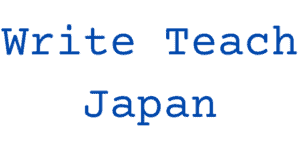I’ve been living and working in Japan for over 13 years, now. Though I am a native English speaker myself, I’ve worked with many non-native English speakers during my time teaching English in Japan. I’ve worked with other teachers from France, Germany, the Netherlands, Brazil, Romania, Mexico, India, and the Philippines. See my blog post about some of the non-native English speakers that I have worked with.
It is more difficult to get a job as an English teacher in Japan as a non-native speaker, but it’s not impossible. See my post about advice for non-native-speakers getting an English teaching job in Japan. In that post I t about …
My advice is to look a little deeper into an area of Japan that you might want to live, and look for the English conversation schools, eikawa in Japanese, that are not the national chains. The smaller locally owned businesses are much more likely to hire someone they feel they have a good rapport with over a video interview than some of the National Chains are.
However, things are slowly moving in Japan and some of the bigger companies are seeing the value in offering a range of international English speakers.
English Conversation Schools that Hire Non-Native Speakers
One Coin English
One Coin English is an English conversation school that is based in the Tokyo and Yokohama areas. They have 9 Schools in Tokyo, and 1 in Yokohama.
They proudly state on their website:
We are cool with accents
One Coin English – Website – https://onecoinenglish.com/hireme/schools/
We have teachers from 50 different nationalities, both from non-English speaking countries, and English-speaking countries!
We value diversity and we do not follow the “you need to be a native speaker to teach English” paradigm.
One Coin English – Website
There is a down side with One-Coin English, from the information on their website it seems that they don’t sponsor visas from overseas. They want you to contact them from inside Japan with a valid work visa. In fact it seems that the only way to apply is through the “Apply Now” button on their website. I went through the application form myself to see how it worked. There is a question in the application form that asks if you have a current Japanese Working Visa with at least nine months remaining on it. If you answer “no” to this question it won’t let you continue with the application.
One Coin English seems like a great option if you’re already in Japan with a visa and you’re looking for other work. There is also a section of their website where you can apply if you’re on a working holiday visa. If your country has a working holiday agreement with Japan, then this could be a great option.
If you’re unsure about whether your country has a working holiday with Japan, check out my blog post here.

Gaba
Gaba English Schools are available in the Kanto, Kansai, and Chubu regions of Japan. It was founded in 1995 to challenge the English Teaching norms of the day which were group lessons, and a one-size-fits-all approach to teaching.
Gaba’s website states:
Gaba’s instructors are multi-cultural and multi-talented, with representation from over 80 different nationalities and all walks of life.
Gaba – Website
Gaba has recruiting channels for people currently outside, and inside, Japan. If you choose the channel “I currently live outside of Japan” you are taken to a page which states:
We accept applications all year round from applicants of any nationality and country of residence.
Gaba – Out of country applicants – https://www.gabateachinginjapan.com/out-of-country-applicants/
Further down the page, under “Requirements” they state that the applicant “must have a fluent command of English (both spoken and written)”.
Aeon
Aeon is truly a nationwide chain of English conversation schools. They have schools from the northernmost mainland island, Hokkaido, all the way to down to Okinawa in the south. They state on their website:
Aeon selects teachers from all over the world, bringing a diversity of culture to our classrooms in Japan. While learning the English language, our students enjoy and benefit from their interaction with their teachers.
Aeon – Expectations and Responsibilities – https://www.aeonet.com/life-at-aeon/expectations-and-responsibilities/
Is it a problem if I’m from a non English-speaking country or I’m not a citizen of an English-speaking country?
Aeon – Frequently Asked Questions – https://www.aeonet.com/frequently-asked-questions/
Aeon requires a masterful control of the English language. Applicants from countries where English is not an officially recognised national language must have a total of at least 10 years of education from schools where English is the primary mode of education, including a bachelor’s degree from an English speaking country.
Interac
Interac is a dispatch company, it doesn’t have schools itself, it provides teachers for ALT (Assistant Language Teacher) positions to local government. I believe that Interac also provides teachers for private businesses and even some university work.
I have included Interac on this list for the sole reason that on their requirements page they state that to be eligible to work at Interac you must “be a native-level speaker of English” rather that a native English-speaker. The difference may just be down to semantics, but it reflects that things are changing, albeit slowly, in Japan. I do however know personally at least one non-native English speaker working for Interac, her English is certainly “native level”.
Here’s the link to Interac if you want to go and check them out.
I hope some of the information provided here will be helpful if you’re a non-native English speaker. Please let me know if there is any other advice or information that would be helpful to you in your job search. And please share with us any successes you have had in trying to get a job teaching in Japan.

Thank a lot for the information you provided here. Its indeed helpful. Am a Nigerian with keen interest to tech in Japan. I hold a Bachelors Degree in Education, majoring in Social Studies Education. Although, we are considered non native English speakers, but we do pretty good jobs when given an opportunity.
I really appreciate the information provided. It’s an eye-opener and helpful. I’m Festus from Ghana and I am a teacher by profession with a Bachelor’s degree in English language education. I’ve been looking for the opportunity to teach in Japan but all my efforts have proven futile. I believe with the information provided I’ll be better equipped to press harder because I need to live this dream at all cost.